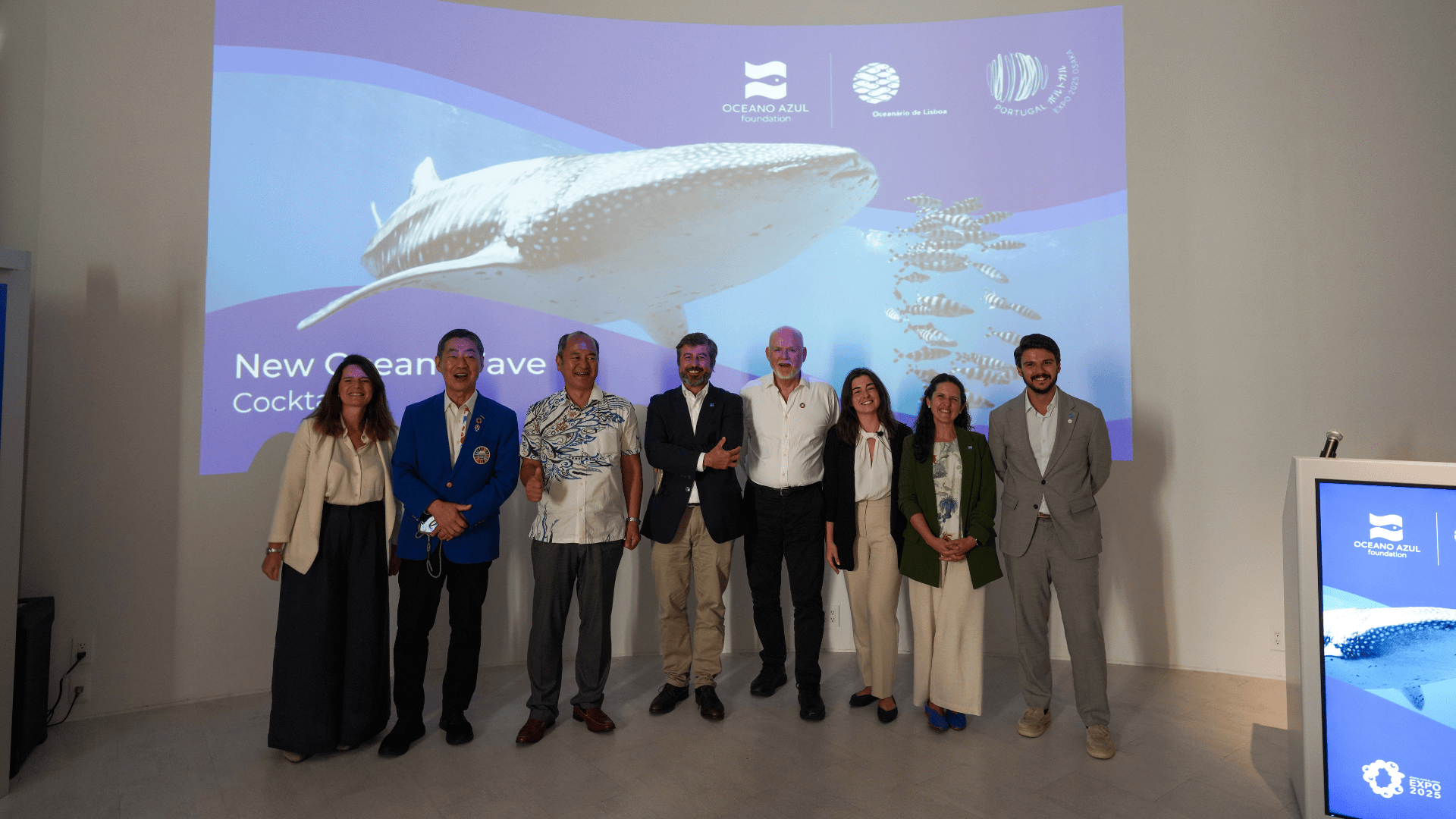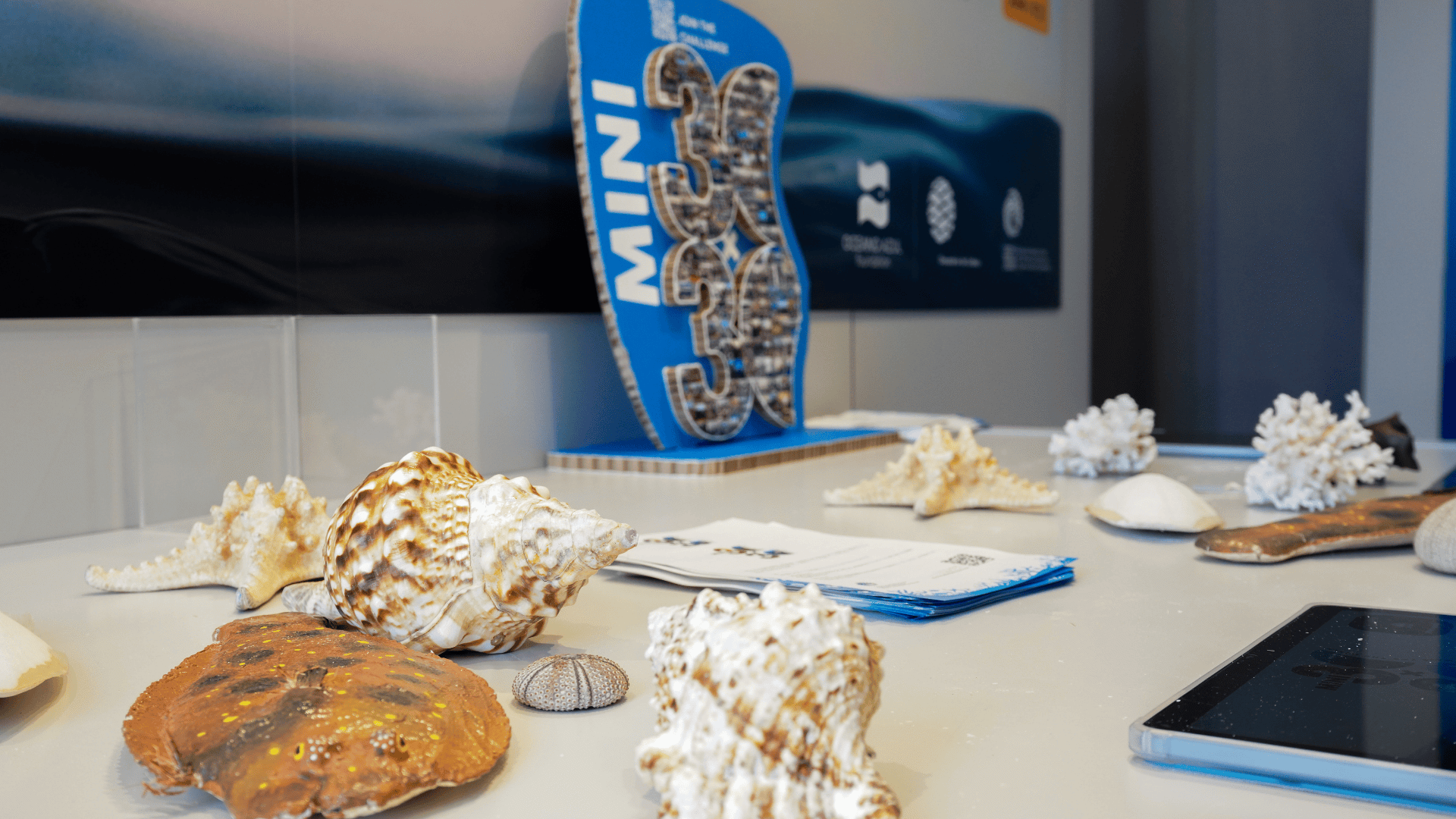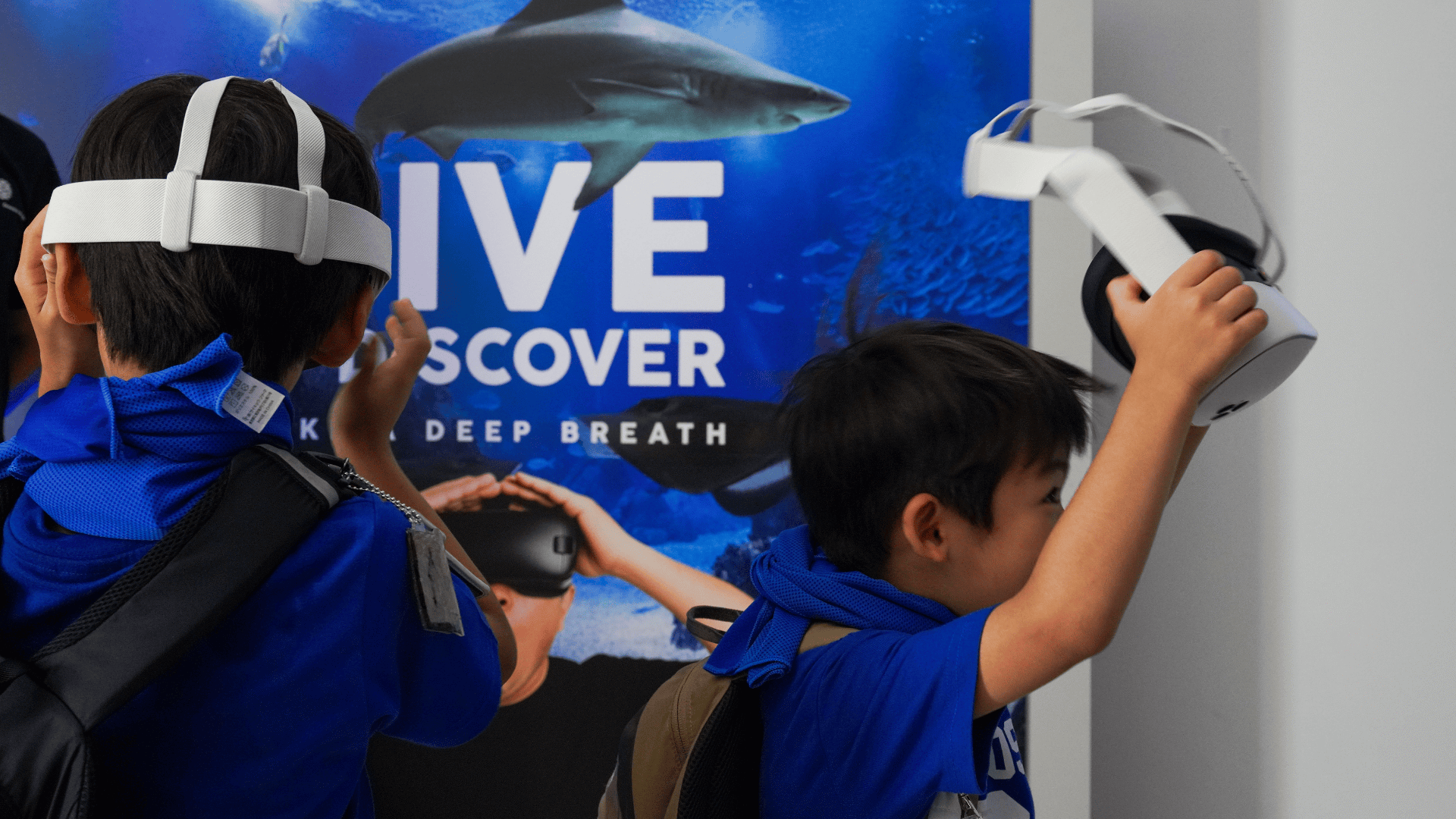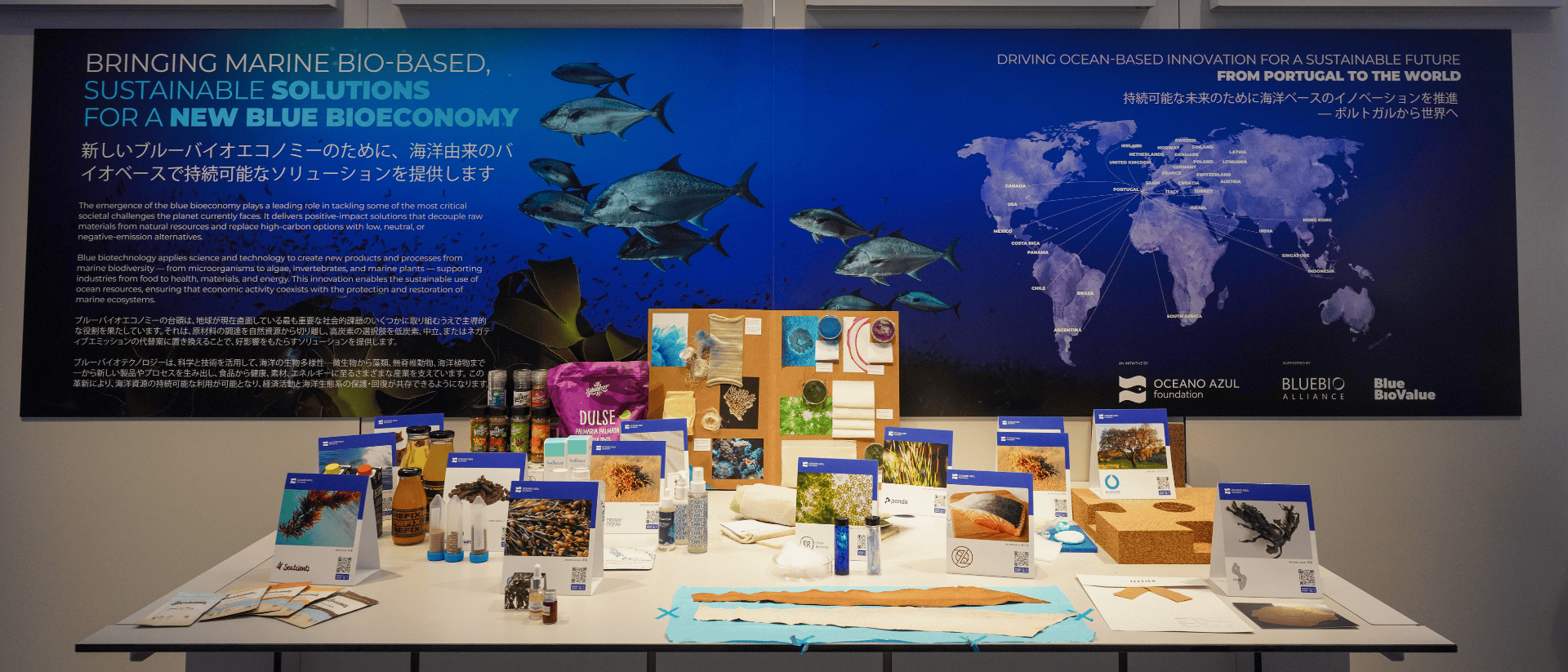Between July 20 and 22, the Portugal Pavilion at Expo 2025 Osaka became a hub for reflection and action on preserving marine resources. Curated by the Oceano Azul Foundation and the Lisbon Oceanarium, the Ocean Made Room and the entire programming over these three days were dedicated to a single theme: the ocean. This choice coincided symbolically with Japan's Marine Day, celebrated on July 21, and reinforced Portugal’s positioning as a global leader in research, management, and policy development for protecting marine assets.
Under the motto "Ocean, the Blue Dialogue", the Portugal Pavilion stood out at Expo Osaka as the only national pavilion entirely dedicated to the sea, emphasising its vital importance for the planet's sustainability, as well as for culture, tourism, and the blue economy. The presence of the Oceano Azul Foundation was highlighted by presentations of contributions to the outcomes of the recent United Nations Ocean Conference (UNOC3) held in Nice, and by emblematic projects supporting the creation and management of Marine Protected Areas—many of them backed by pioneering scientific expeditions.
Under the motto "Ocean, the Blue Dialogue", the Portugal Pavilion stood out at Expo Osaka as the only national pavilion entirely dedicated to the sea, emphasising its vital importance for the planet's sustainability, as well as for culture, tourism, and the blue economy. The presence of the Oceano Azul Foundation was highlighted by presentations of contributions to the outcomes of the recent United Nations Ocean Conference (UNOC3) held in Nice, and by emblematic projects supporting the creation and management of Marine Protected Areas—many of them backed by pioneering scientific expeditions.

The program also included initiatives linked to the blue economy, developed in partnership with BLUEBIO ALLIANCE, demonstrating how innovation can generate sustainable solutions from marine resources. Education was also at the core, with the Lisbon Oceanarium leading ocean literacy activities and promoting the global Mini 30x30 movement, which calls for protecting at least 30% of the world's oceans by 2030.
The highlight of Portugal's participation was the international conference "New Ocean Wave", which brought together personalities such as Peter Thomson, UN Secretary-General’s Special Envoy for the Ocean; Masanori Kobayashi, from the Sasakawa Peace Foundation; and Tiago Pitta e Cunha, CEO of the Oceano Azul Foundation. During a series of remarkable interventions, speakers stressed that the ocean faces an unprecedented crisis—threatened by pollution, biodiversity loss, acidification, rising temperatures, and extreme climate events—and emphasised the urgent need to redefine humanity’s relationship with this essential life-supporting resource.
The highlight of Portugal's participation was the international conference "New Ocean Wave", which brought together personalities such as Peter Thomson, UN Secretary-General’s Special Envoy for the Ocean; Masanori Kobayashi, from the Sasakawa Peace Foundation; and Tiago Pitta e Cunha, CEO of the Oceano Azul Foundation. During a series of remarkable interventions, speakers stressed that the ocean faces an unprecedented crisis—threatened by pollution, biodiversity loss, acidification, rising temperatures, and extreme climate events—and emphasised the urgent need to redefine humanity’s relationship with this essential life-supporting resource.

Over the three days, visitors could engage with games on Marine Protected Areas, sign the Mini 30x30 open letter—which included participation from Japan’s first students—and virtually explore the Oceanarium aquariums and the Atlantic Giant, the Gorringe Submarine Mountain, aboard the schooner Santa Maria Manuela. This immersive experience stemmed from the 2024 Oceano Azul scientific expedition, which was instrumental in advancing protection for this area: Expedição Científica Oceano Azul (Gorringe).
Twenty-seven years after Expo 98, dedicated to the theme "Oceans: A Heritage for the Future", the Lisbon Oceanarium returned to a world exposition—and did so in Japan, in a curious architectural reunion: Osaka’s Kaiyukan Aquarium was designed by the same architect as the Portuguese Oceanarium, Peter Chermayeff.
Through its presence at the Portugal Pavilion at Expo 2025 Osaka, organized by AICEP, Portugal not only reinforces its voice on the international ocean agenda but also sends a clear message to the world: it is time to act—with science, innovation, and education—to ensure that the ocean—this shared, borderless heritage—continues to sustain life on our planet.
Twenty-seven years after Expo 98, dedicated to the theme "Oceans: A Heritage for the Future", the Lisbon Oceanarium returned to a world exposition—and did so in Japan, in a curious architectural reunion: Osaka’s Kaiyukan Aquarium was designed by the same architect as the Portuguese Oceanarium, Peter Chermayeff.
Through its presence at the Portugal Pavilion at Expo 2025 Osaka, organized by AICEP, Portugal not only reinforces its voice on the international ocean agenda but also sends a clear message to the world: it is time to act—with science, innovation, and education—to ensure that the ocean—this shared, borderless heritage—continues to sustain life on our planet.





